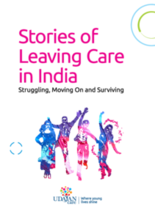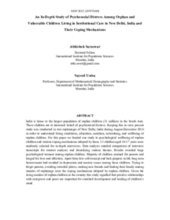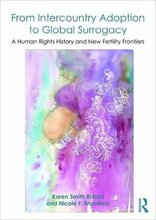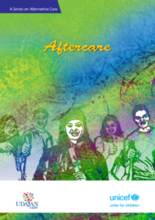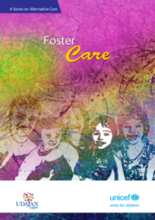childrens_living_arrangement
children_living_without_bio
Displaying 311 - 320 of 427
India’s Central Government announced as of January 16, 2017, Adoption Regulation 2017 will be operational. New regulation is said to “streamline” the adoption process.
The case studies outlined in this publication draw upon earlier work, which suggested that young people leaving care may broadly fall into one of three groups: those successfully ‘moving on’ from care; those who are ‘survivors’; and those who are ‘strugglers’.
Using national and international law, court observations, and field experiences, this paper argues a case for deinstitutionalization of children in India, by empowering the families, thereby protecting children's right to a family and preventing abuse and exploitation.
This study examined the psychological wellbeing of children in institutions and their various coping mechanisms.
This brief paper highlights some of Young Lives key findings on violence affecting children, exploring what children say about violence, how it affects them, and the key themes that emerges from a systematic analysis of the children’s accounts.
Extracting on chronologic data, this book discusses the politics and practice of intercountry adoption starting with the state international adoption to in the 1950s continuing to present-day adoption practice and protections.
Indian government finds that increased wait for adoption related to rise in human trafficking.
In the wake of a child smuggling racket being unearthed in the state, the West Bengal government on Monday announced setting up a panel for prevention of child trafficking.
This booklet on aftercare is part of a Series on Alternative Care covering the latest legal and policy framework on Alternative Care in India, which has been presented in an easy-to-understand style so that they can be used as an effective reference material by all stakeholders.
This booklet covers the latest legal and policy framework on Foster Care in India, which has been presented in an easy-to-understand style so that it can be used as an effective reference material by all stakeholders.

